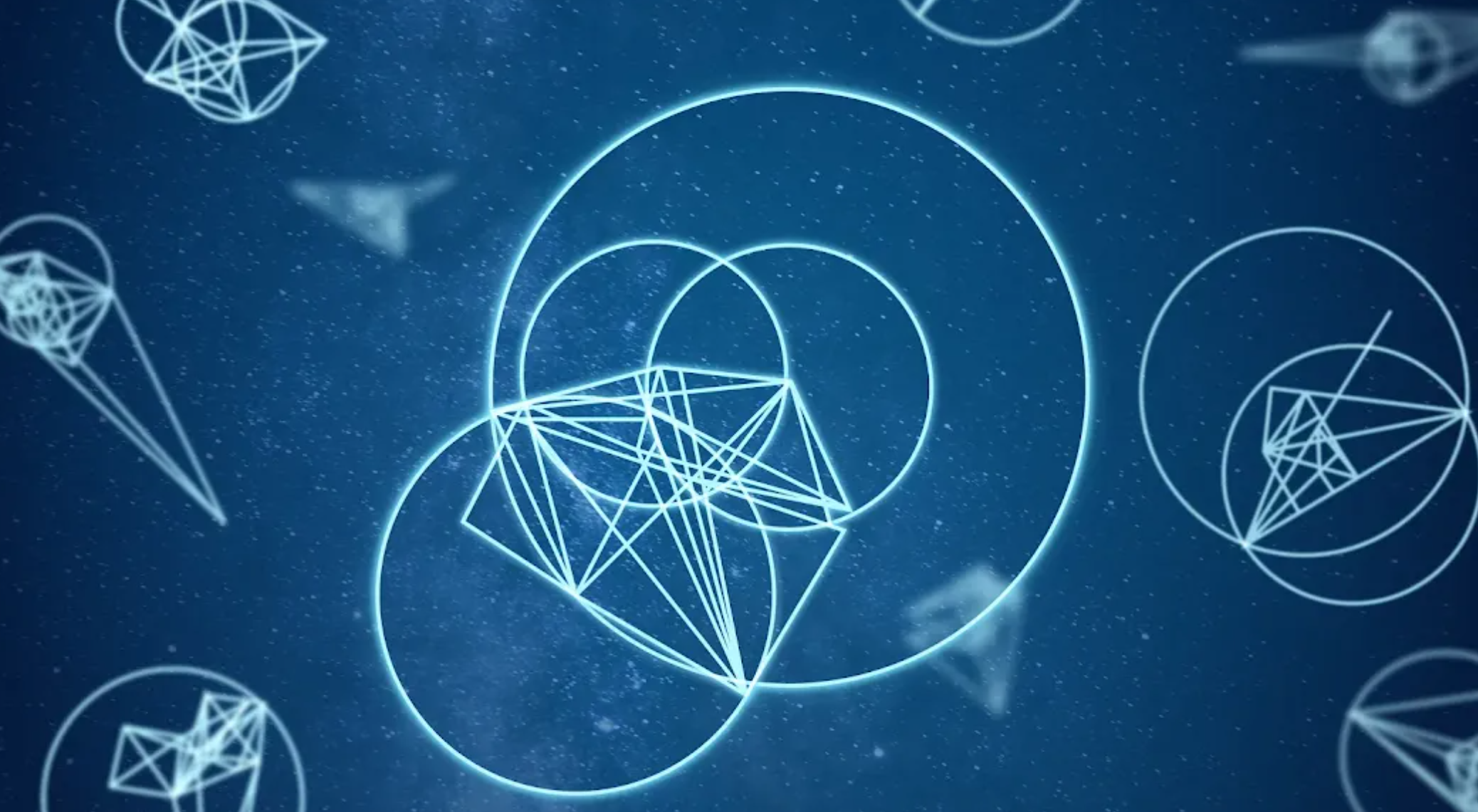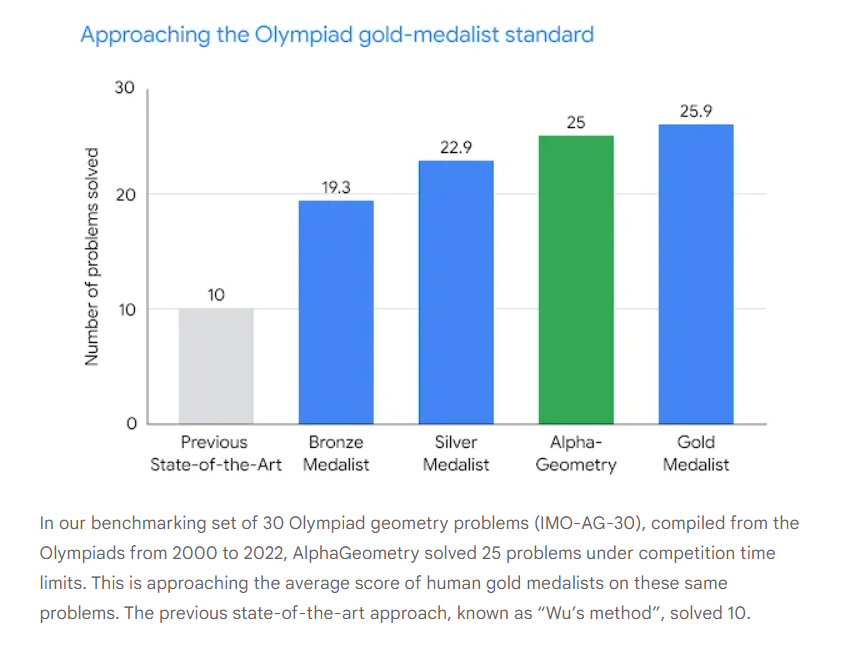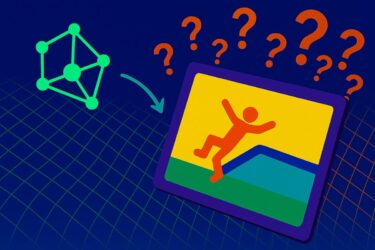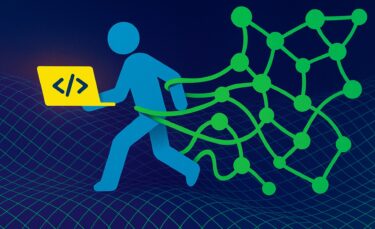Google Deepmind introduces AlphaGeometry, a new AI system that nearly matches the ability of the world's best students to solve geometry problems. It also demonstrates the potential of synthetically generated AI training data.
According to a study published Wednesday in Nature, Google Deepmind's AlphaGeometry correctly answered 25 out of 30 questions in the International Mathematical Olympiad (IMO) for high school students.
By comparison, the previous top model solved ten of these geometry problems, while the human gold medalist solved an average of 25.9 problems.
This performance is very close to the gold medal standard of human participants and, according to Deepmind, underlines the growing competence of AI in the field of mathematics.
The reasoning and learning challenges of complex mathematics make it an important test on the road to Artificial General Intelligence (AGI) that is equal to or superior to humans.
Deepmind researcher Quoc V Le, who is involved in the project, tells the Financial Times that the new system is a "crucial step towards building an AGI".
"This is another example that reinforces how AI can help us advance science — and better understand the underlying processes that determine how the world works."
How does AlphaGeometry work?
AlphaGeometry is a neuro-symbolic system that combines language learning and deductive reasoning. The system combines the predictive power of a neural language model with a rule-based deduction engine that works together to find solutions.
The language model acts as a kind of solution assistant, suggesting new approaches to the symbolic engine when it is unable to find a solution on its own.

Google Deepmind likens this approach to psychologist Daniel Kahneman's term "fast thinking, slow thinking," which combines the power of fast pattern recognition with the deliberation of logical reasoning.
Some AI researchers believe that the future of AI lies in such hybrid systems. Purely correlation-based AI systems, such as large language models, often struggle with complex geometric and mathematical problems and many other tasks because they lack logical skills and reliability.
AlphaGeometry creates its training data by generating random geometric diagrams from shapes and lines. The system then identifies and reconstructs all connections, relationships, and proofs within these diagrams. This process allows AlphaGeometry to learn and understand geometry without relying on human demonstration or instruction.
Deepmind calls this technique "symbolic deduction and traceback." It gets around the problem of too little training data in mathematics.
The finished dataset consists of a billion random, unique diagrams of geometric objects, with all the relationships between the points and lines in each diagram "exhaustively derived."
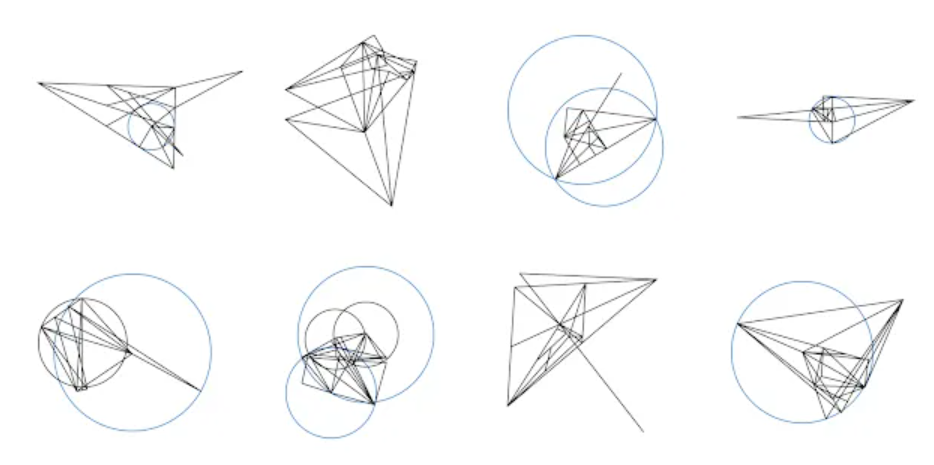
Humans are still superior logical thinkers
Despite its impressive performance, AlphaGeometry encountered some problems it could not solve, such as the intersecting circles puzzle solved by Vietnamese mathematician Lê Bá Khánh Trình at the 1979 Olympics.
Although AlphaGeometry can only solve one-third of the Olympic problems, it is the first AI model in the world to cross the bronze medal threshold at the 2000 and 2015 Olympics, according to Deepmind.
The researchers hope that AlphaGeometry and other approaches to synthetic data generation and training will open up new possibilities in math, science, and AI.
An even bigger goal for Deepmind is to create AI systems that can solve mathematical problems that have proven too complex for the human mind.
Deepmind has no plans to officially enter the International Math Olympiad, but has not ruled it out. Deepmind is making its code and model available as open source on Github.
